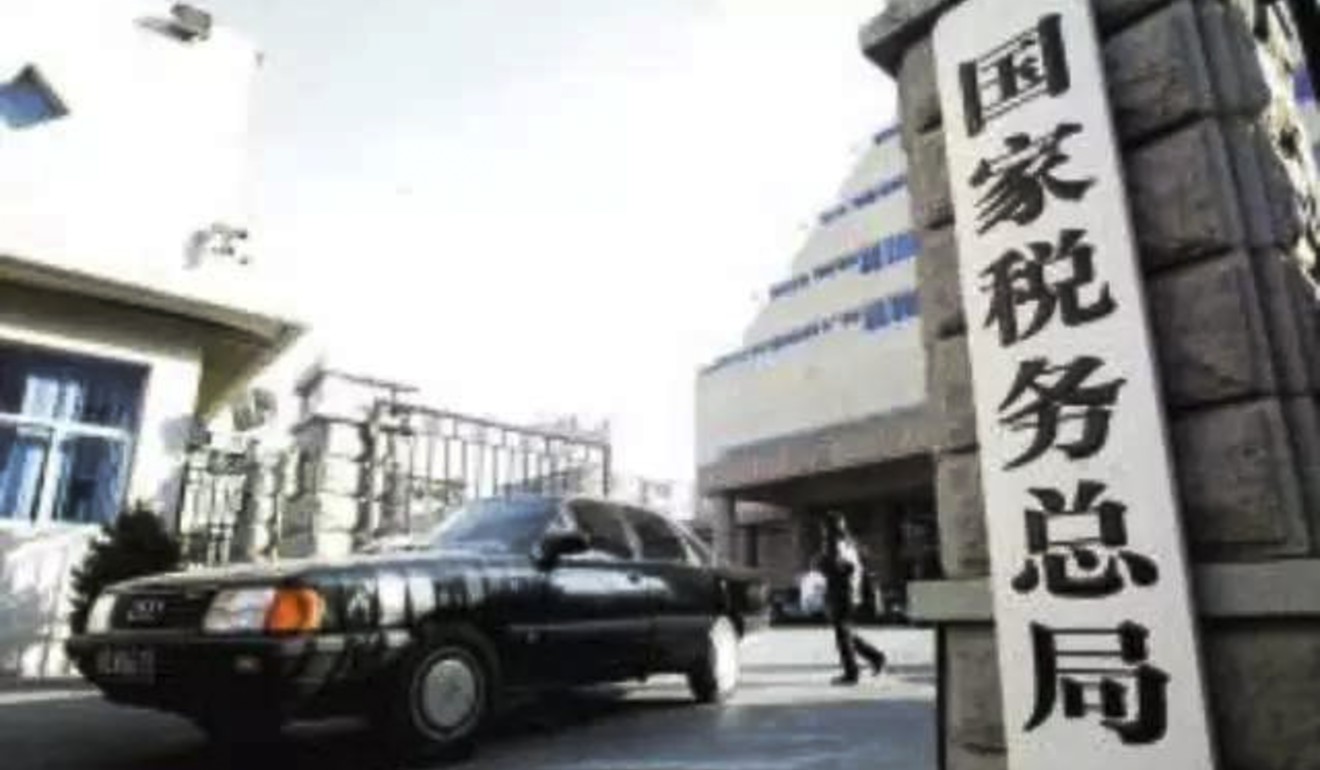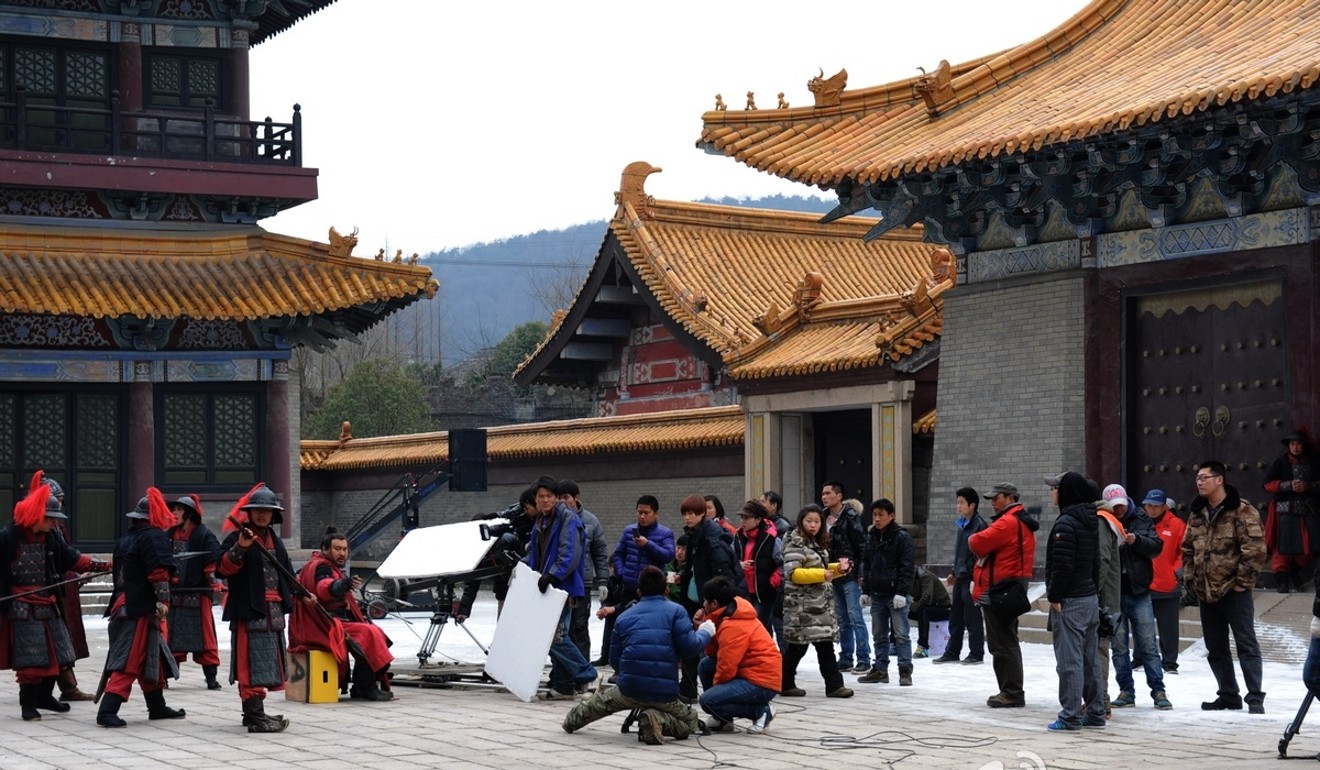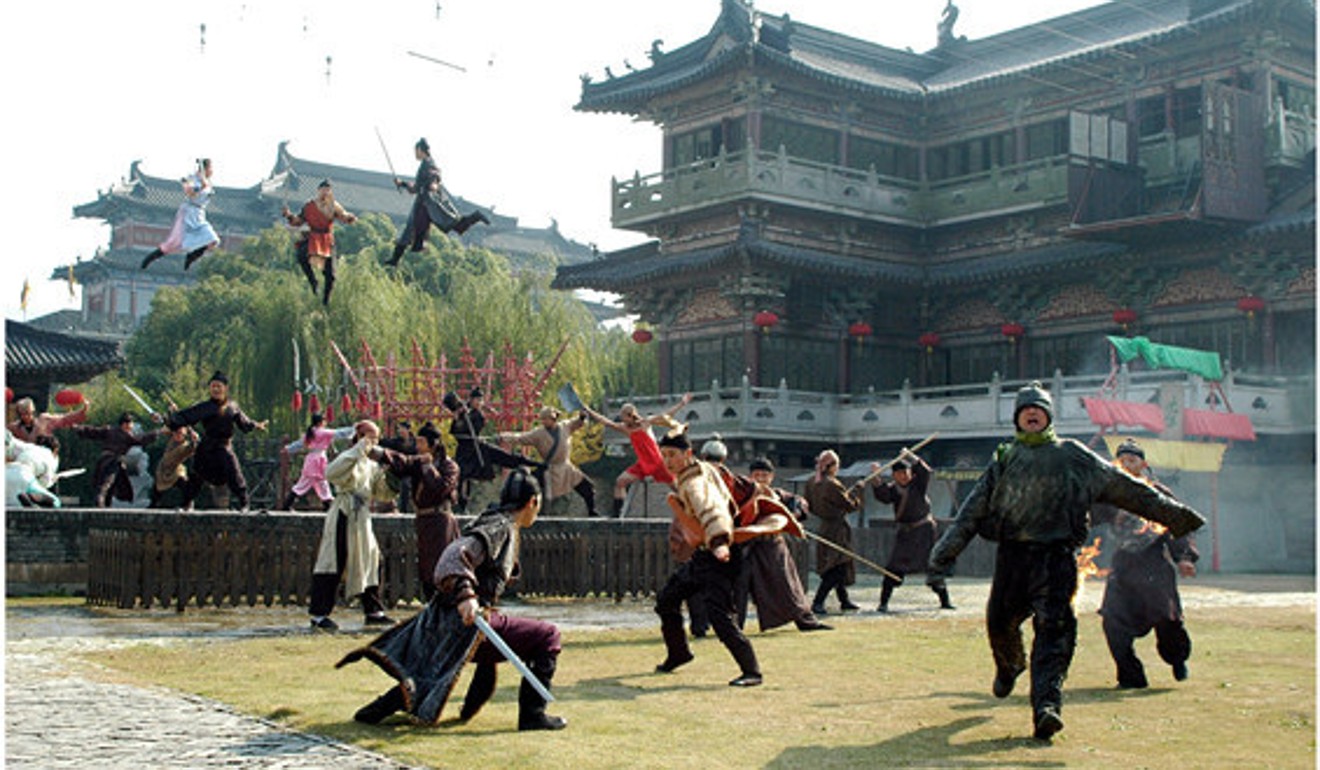
Say goodbye to Huallywood? The star tax probe clouding a Chinese city’s movie-making dreams
Claims of tax evasion by highly paid performers could be a major plot twist in debt-ridden Wuxi, a city building its hopes of a better future on film and TV production
These are taxing times for inland revenue officials in the eastern Chinese city of Wuxi, where allegations of tax evasion are creating a real-life drama in China’s version of Hollywood.
In less than a decade, a massive movie-making machine – a complex of hundreds of production houses dubbed “Huallywood” – has risen from the ruins of a steelworks to become the country’s cinematic centre of gravity.
Although the entertainment industry is not a huge contributor to Wuxi’s economy, the city hopes it will become a leading source of revenue.
But now that is all under threat, with officials under pressure from the public and the central government to investigate claims that some of the biggest names in show business are colluding with film studios to under-report tax via a system of “yin-yang” contracts.
The practice involves the celebrity signing two contracts: one stating the real amount the signatory will receive and another showing a much lower payment to be submitted to the tax authorities.
The contracts are illegal but reportedly common in everything from the property sector to soccer clubs. The authorities have launched various campaigns over the years to eradicate the practice but have been hampered by inadequate accounting systems and soft penalties.
But this time could be different.
The State Administration of Taxation has ordered its officials in Wuxi, Jiangsu province, to “look into the alleged tax evasion by certain film and television professionals whose names were mentioned in online discussions”, according to two administration sources.
Those discussions kicked off late last month when television presenter Cui Yongyuan posted photos online of two contracts – one for 10 million yuan (US$1.5 million) and the other for six times that amount. The contracts were allegedly signed by A-list Chinese actress Fan Bingbing, who starred in the 2014 Hollywood blockbuster X-Men: Days of Future Past.

Fan’s studio, based in Wuxi, immediately denied any impropriety and threatened to follow up with a defamation suit.
Cui later said the two documents were “not about Fan”, but insisted double contracts were widespread in show business.
The dust-up stirred up a wider popular outrage, with critics saying the system rewarded “worthless” celebrities while others struggled to survive.
The tax administration then waded in, vowing to conduct a thorough investigation into the industry.
“[We will] step up supervision over the taxes paid by top show business professionals, and anyone found to have broken the law would be punished,” it said.
And People’s Daily, the Communist Party’s mouthpiece, issued an online call for an “impartial investigation into whether some film and television professionals had signed two contracts for one job to evade tax”.
The speed of the administration’s reaction, and the sharp criticism in tightly controlled state media, raised speculation of a broader crackdown and sent shares in Chinese film studios into a nosedive.
All this is creating a dilemma for tax authorities in debt-ridden Wuxi.
The local government has taken great pains since 2011 to attract 500 or so companies to Huallywood in hopes the asset-light sector can help change the area’s overreliance on property development. The companies, many of them also doing business elsewhere, were offered various incentives ranging from rent reductions to tax breaks.

In the first half of last year, the companies contributed 270 million yuan to the city’s coffers, less than 1 per cent of Wuxi’s tax revenues, official data showed. And 80 per cent of the taxes will be returned in the form of specialised funds – all in the hope that the industry will burnish the city’s image and boost local revenues in the future.
But as much as the officials want to protect the industry, they also have to heed Beijing.
“Local officials are concerned that the swift reaction from tax authorities could mean that someone high up is taking a personal interest,” the second source said.
“Technically, it is not difficult to find out whether there is any tax fraud,” another source said. “If local officials take the helm, they would like to get over it quickly and resume their tolerance about celebrity taxation – ignoring the elephant in the room.”
But the hard part is “guessing what is in the hearts of top authorities”. “Do they just play lip service or mean business? Local officials are perplexed,” the second source said.
To play safe, the city bureau has kept the case in the hands of its risk control units, instead of handing it to an inspection division, something the huge amounts involved in the alleged tax evasion would ordinarily justify, according to the sources.
“It’s a hot potato. Local officials are not likely to act on their own until there are clear signals of the wind direction,” a source said.
The last time a top entertainer was entangled in a tax investigation was in 2002, when leading actress and businesswoman Liu Xiaoqing was jailed for a year for evading 14.6 million yuan in tax. The investigation was triggered when then premier Zhu Rongji reportedly asked authorities to check the books of rich-list celebrities.

In the years since, China’s entertainment industry has grown dramatically, with box-office revenues rising from less than US$1 billion a decade ago to US$8.6 billion last year. The prosperity has minted many wealthy performers – Forbes listed Fan as the world’s fifth-highest paid actress in 2016 with earnings of US$17 million. The annual average disposable income of an urban resident that year was about 33,000 yuan, while for people living in rural areas the amount was just 12,300 yuan on average.
Critics say that apart from highlighting the rich-poor divide, the stratospheric star payments could be squeezing production budgets and affecting overall film and television quality.
Last year, the State Administration of Press, Publication, Radio, Film and Television issued directives to rein in runaway pay for stars. Media federations also proposed limiting “entire cast members” salaries to no more than 40 per cent of total production costs and the salary of leading actors and actresses not exceed 70 per cent of the entire cast’s salaries.
“Actually discussions to restrict the pay of on-screen performers have been gaining steam since last year,” one of the sources said.
Observers said the issue was bigger than Wuxi and broad action was needed to make the tax system fairer, but it was not clear that any major change would occur this time.
Chen Shaofeng, deputy dean of the Institute for Cultural Industries at Peking University, said it was hard to predict whether the online row would herald a nationwide tax investigation into celebrities. “But given the industry proposals won’t work because they’re not legal binding, there will be measures to address the tax evasion problem,” Chen said.

Nathan Jin, research head from film industry consultancy EntGroup in Beijing, said any measures would be mild and actors would find one way or another to evade taxes.
“Dual contracts are an open secret in the entertainment sector and have been around for a long time,” Jin said.
“I don’t think there will be a severe crackdown because the industry as a whole is a big taxpayer and the party needs it as a propaganda tool to promote ‘red culture’.”

